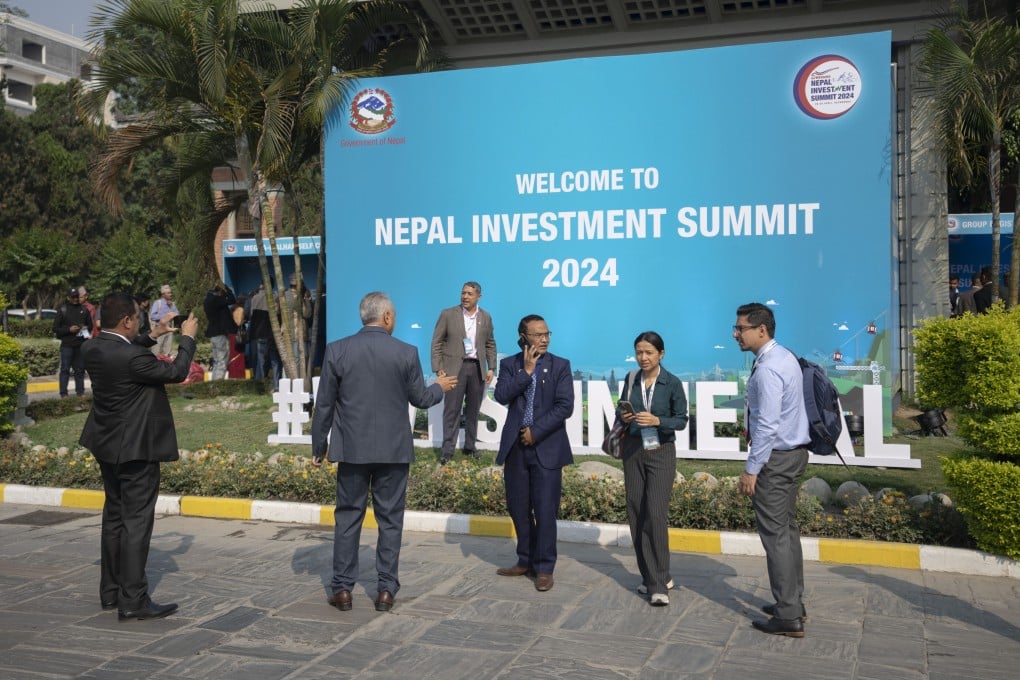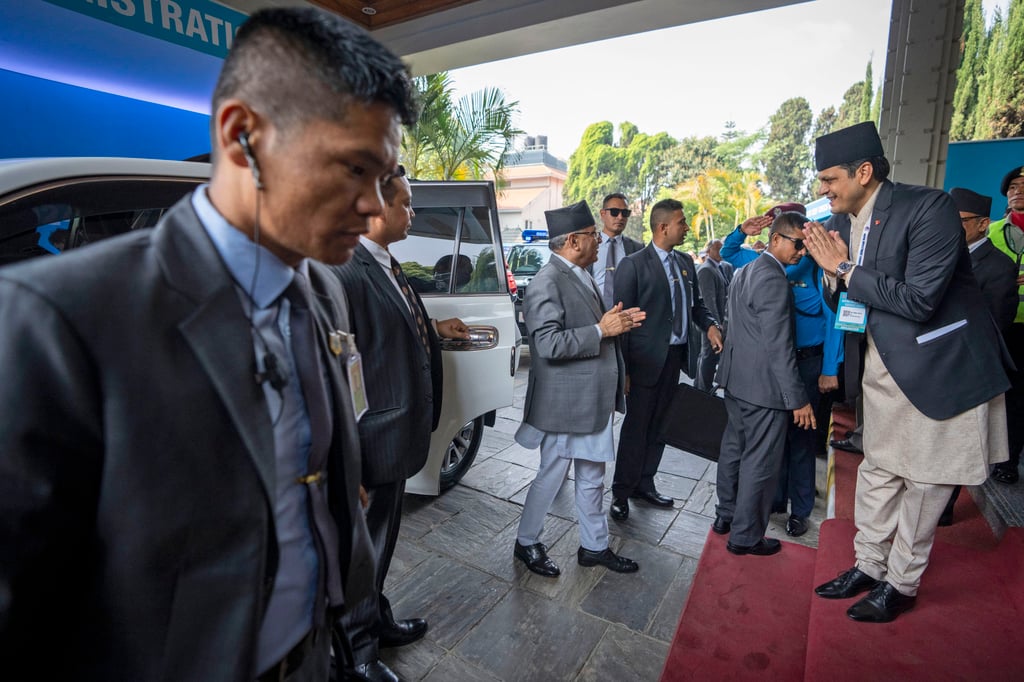Can Nepal get a lift from wooing by India and China to become a middle-income economy?
- Nepal’s ‘dysfunctional’ politics may curb its economic ambition amid jostling between India and China to step up their investments in the country
- Nepal also needs to cut red tape and develop a robust bureaucracy to achieve its aim of becoming an investment hub, economists say

Potential investors pledged during the summit to inject as much as 9.13 billion Nepali rupees (US$68.3 million) into the country, which is still navigating its transition from a centralised monarchy to a federal democratic republic under its 2015 Constitution, as well as an economic transformation from being less reliant on international aid to becoming a hub for global investments.
“Our unwavering commitment to liberal economic policies lays the foundation for a vibrant and investor-friendly business environment,” said Nepal Prime Minister Pushpa Kamal Dahal.
“Nepal’s strategic location, situated between emerging markets India and China, signifies it as an ideal investment destination,” he told the summit during its opening on Sunday.

While India and China did not directly compete with each other to invest in the projects offered at the summit, their overlapping interests could be seen in the resulting deals that were announced.
